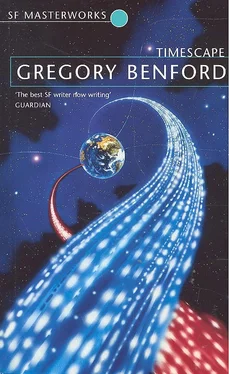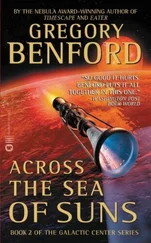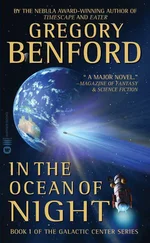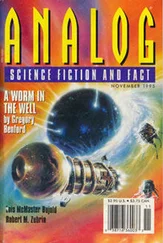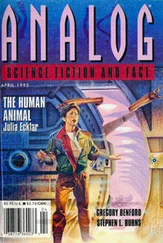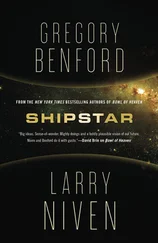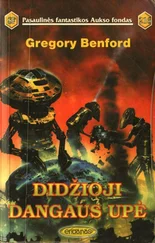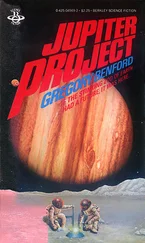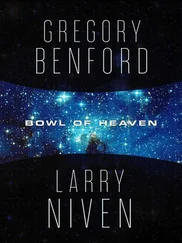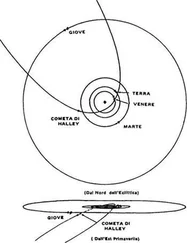He screwed it up and dropped it in the wastepaper basket. He turned on the radio, a neat little battery one. There seemed to be nothing but music anywhere. He looked automatically at his watch and realized he wasn’t wearing it. What time had the nurse said it was? His stomach gurgled loudly. Three pips suddenly interrupted the music.
“This is the BBC Radio Four,” a woman’s voice announced, “and here is the 6 o’clock news. First, the headlines: Fifty people are dead tonight after violent rioting in the streets of Paris. A United Airlines flight from London to Washington crashed early this morning, killing everyone on board. The bloom spreading across the Atlantic Ocean has advanced miles in a day. The World Council has approved an Energy Plan despite a veto by the OPEC countries. Power failures lasting over six hours caused factories to shut down in the Midlands today. The Test match at Lord’s cricket ground was canceled today as ten members of the Australian team have been hospitalized with food poisoning. Tomorrow’s weather: sunny in patches, increased chance of storms.” A pause. “Rioting French students were joined by workers today in Paris…”
Peterson did not listen. He felt light and unsteady. The nurse came in with a tray. He signaled her to leave it on the bedside table. Something in the news had disturbed him and he wasn’t quite sure what it was. It must be the news of the bloom. And yet he felt no reaction as he ran that past again.
“United Airlines flight 347, London to Washington, D.C., encountered turbulence on its approach to Dulles airport and crashed in late afternoon. Transmissions from the pilot were garbled. There seem to have been seizures of both pilot and copilot in the moments before the crash. Witnesses said the plane appeared to explode as it struck the trees. There were no survivors. This latest in a series of airline disasters has—”
Jesus! His palms were sweating. He pressed the buzzer for the nurse. She did not come at once. He held the button down and shouted “Nurse!”
She came in hurriedly, leaving the door open.
“What’s the matter now? Why, you haven’t even touched your broth.”
“Damn the broth. What day is this? Is it Wednesday?”
“Yes, it is. But are you—”
“I want a phone. Why isn’t there a phone in here?”
“It was taken out so you wouldn’t be disturbed.”
“Well, get it back.”
“I don’t know if I’m supposed to do that…”
“What’s going on here?” The first nurse bustled in again.
“Sister, Mr. Peterson is asking for a phone in here.”
“Oh no, we don’t need that. Don’t want you to be disturbed, do we?”
“I’m being disturbed now,” he shouted. “Get me a phone!”
“Now, now, Mr. Peterson, we can’t have that…”
“Listen, you stupid cunt,” he said clearly and tensely, “I want a phone in here right now or I’ll have you fired!”
There was a shocked silence and the two women backed from the room, eyeing him warily. He lay back, shaking. Through the door, which they had left open, he could hear moaning.
Presently an orderly brought in a phone and plugged it in. Peterson took a sip of water and fought the rising nausea. He dialed his secretary’s number.
CHAPTER THIRTY THREE

SEPTEMBER 25, 1963
GORDON WAS WALKING DOWN THE HALLWAY, ON HIS way back to the lab, when he overheard the remark. Two full professors were talking in low voices. “—and as Pauli said, it isn’t even wrong!” one finished as Gordon approached. They saw him and instantly fell silent. Gordon knew the story. Pauli was a prominent, highly critical physicist in the first half of the century. He had remarked, about a scientific paper, “This work is so bad it’s not even wrong.” Meaning, it began and ended in midair; it was so badly formulated it could not be tested. Gordon knew instantly they were talking about him. The Life article had done its work. When he reached the end of the hallway there was more murmured talk behind him and then a final bark of laughter.
• • •
Penny brought home a copy of National Enquirer and left it out for him to see when he came in late. On the front page was a headline, NUCLEAR CALL FROM OUTER SPACE and beneath it, Prominent Scientists Contact Other World . There were two photographs of Saul and Gordon, evidently by the Life photographer. Gordon threw it in the trash without reading it.
• • •
At the beginning of classes there was a party for the physical sciences faculty, to mark the opening of the new Institute for Geophysics building. The staff sterilized the bowl of a fountain on the lawn outside. Hugh Bradner and Harold Urey filled it with a potent mix of vodka and fruit juices. Gordon had thrown his invitation away with the usual university news notices; Penny discovered it and insisted they go. He wanted to get some rest, but her nagging made him pull on his lightest jacket and, for the first time, skip wearing a tie. In California such details were unimportant. Penny sported a floppy tan straw hat—“For dress-up,” she said. Behind it she could hide a fraction of her face. This sense of added mystery rekindled in him an interest in her. He realized that he had been going through the motions these last few weeks, saddled with lecture preparations and spending most of his time with the NMR rig. This knowledge shocked him. The zest of their beginnings was seeping away. The abrasions between them were rubbing off the cosmetic illusions.
He spoke to several members of the Physics Department, but struck up no interesting conversations. Penny found some literary types but he was unmoored, wandering from one knot of academics to another. The English Department people already seemed drunk, quoting modern poets and ancient movies. There were bright, airy people there he’d never seen, goy princes, blond and unbearably self-assured, the sort of people who had refrigerators full of yogurt and champagne. He saw a visitor from Berkeley in the crowd, tall and well dressed, a Nobel winner of some years back. Gordon had met him before. He wedged himself into the crescent of people around the man and, when the Nobel laureate’s eyes shifted to him, he nodded. The eyes passed on. No nod, nothing. Gordon stood, plastic cup in hand, glassy smile on his face. The eyes came by again. No pause, no flicker of recognition. Gordon backed out of the chattering crescent, face reddening. Maybe he didn’t recognize me , Gordon thought, walking away. He got himself another cup of the vodka. On the other hand, maybe he did .
“Good booze, eh?” a man said at his elbow. “Try to say ‘spectroscopy’ three times, real fast.” Gordon tried the exercise, and failed. The man turned out to be named Book, and indeed, he did look bookish. He was from General Atomic and proved to be far friendlier than the university people. They stood under a sign that proclaimed, IF YOU CAN READ THIS, THANK A TEACHER. None of Book’s levity penetrated Gordon’s mood. Vodka, however, began to relieve the world of its awful concreteness. He began to see the point in goys drinking so much. Book went off somewhere and Gordon drifted into conversation with a visiting particle physicist, Steingruber. Both of them shared a deepening appreciation for the vodka. They began to discuss the ageless topic, women. Gordon made several pronouncements about Penny. In a curious way he did not quite understand, Gordon inverted their roles, so that Penny had been the sexual student initiated into the adult world by himself, the sophisticate from New York. Steingruber accepted this as only reasonable. Gordon came to see that Steingruber was indeed a fine fellow, capable of profound insight. They had another drink together. Steingruber pointed to a blond standing a short distance away and asked, “What is your opinion of that one there?” Gordon peered at her and pronounced, “Pretty cheap looking. Yeah.” Steingruber looked at Gordon sharply. “She’s my wife.” In a moment, before Gordon could frame a suitable reply, he was gone.
Читать дальше
